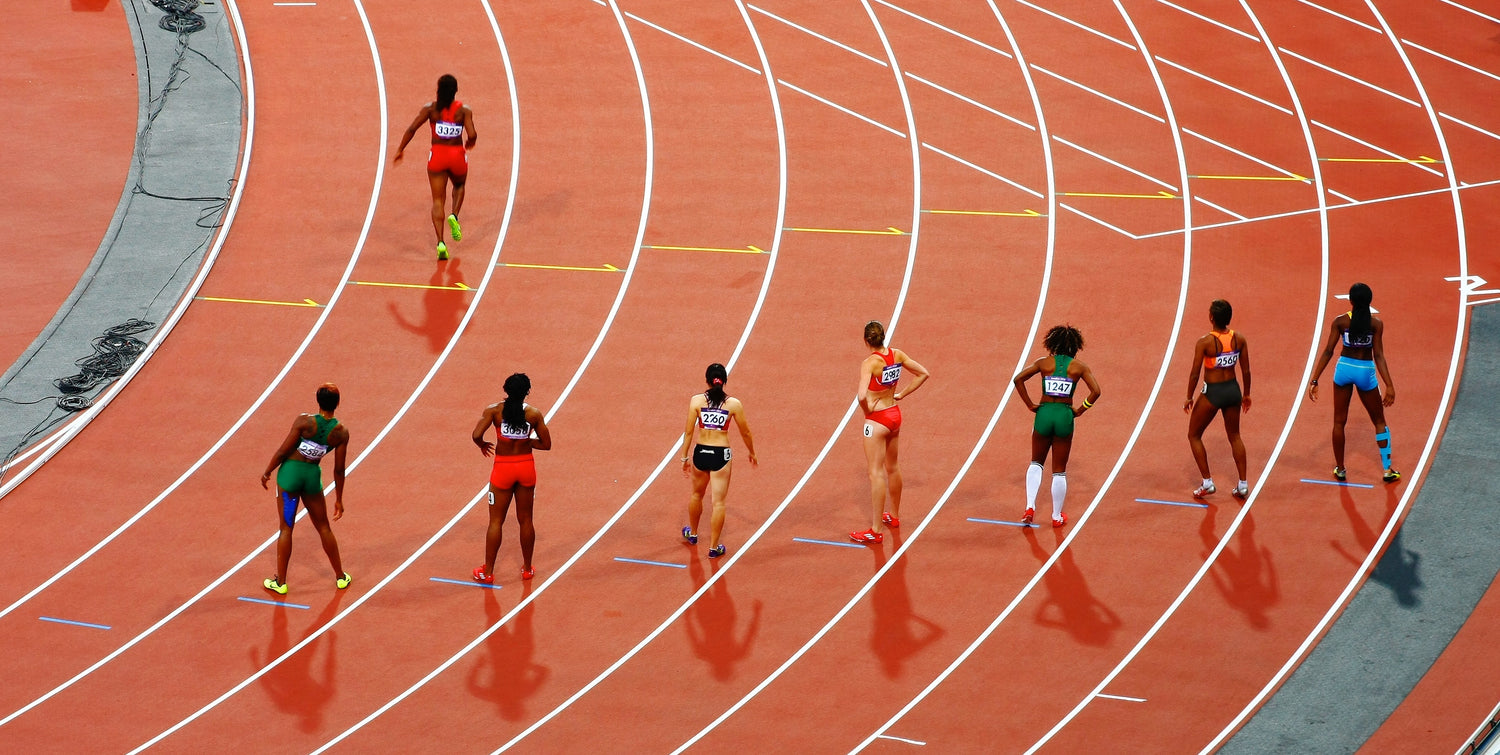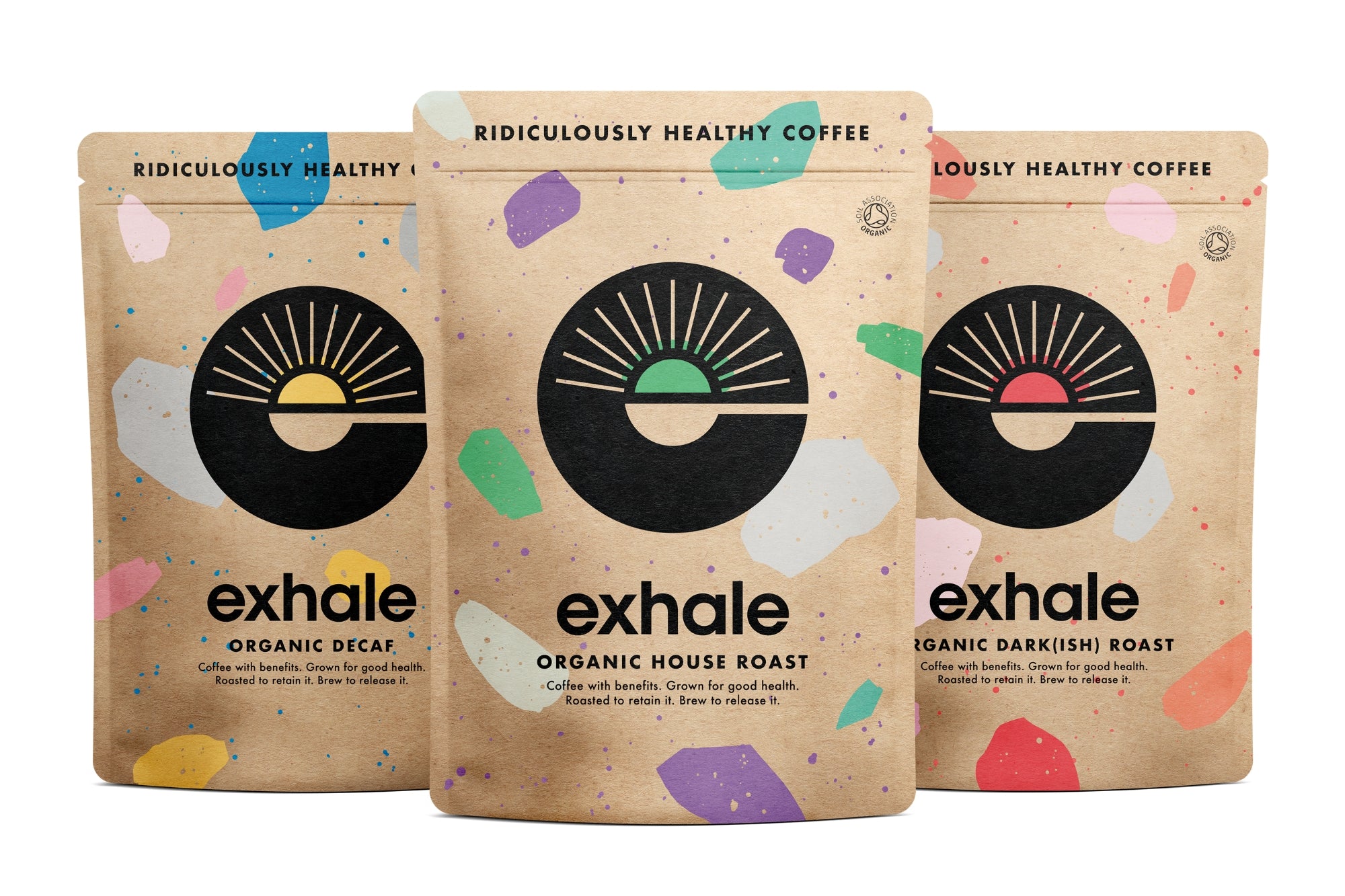Background
Caffeine has long been touted as a performance-enhancing supplement. In fact, research dates back to 1907 when it was investigated for it’s capacity to improve “muscular work”!
Caffeine was actually placed on the World Anti-Doping Agency’s (WADA) banned list in 1984 and remained there until 2004 when it was removed, and placed on the monitoring program after it was determined that it no longer satisfied two of the three criteria needed to be on the banned list. If your curious about what these criteria are:
- It has the potential to enhance sport performance
- It represents a health risk to the athletes
- It violates the spirit of sport
More recently there has been an explosion in research into caffeine’s performance enhancing properties, as well as coffee’s health, and performance enhancing, properties. Let’s take a look at what the science says.
How Does Caffeine Improve Performance?
There are several proposed mechanisms for caffeines performance enhancing properties:
Adenosine Receptor Binding: Adenosine promotes muscle relaxation and sleepiness and blocks the release of many feel-good substances in the brain, including dopamine. Caffeine (as well as theophylline and paraxanthine, caffeine metabolites) has a structure that is very similar to adenosine. So similar in fact, that it can bind to adenosine’s receptors, reducing the ability of adenosine to do so. This is the cause of many of caffeine’s fairly obvious effects (increased heart rate, blood pressure, wakefulness, and alertness) as well as it’s performance enhancing properties.
Energy Utilisation: During exercise caffeine acts to decrease reliance on glycogen usage (stored carbohydrates in the liver and muscles) and increase dependence on fat as a source of energy. It has been hypothesised that this would lead to “glycogen sparing" meaning that we would tap into our carbohydrate stores later on in an event, and thus, would experience delayed fatigue during endurance exercise.
Endorphin Concentrations: Endorphins are chemicals produced naturally by the nervous system to cope with pain or stress. They are often called “feel-good” chemicals because they can act as a pain reliever and happiness booster. Caffeine may improve endurance performance by increasing the secretion of these endorphins, and thus may lead to a decrease in pain perception.
Neuromuscular Function: Caffeine may result in alterations of neuromuscular function and/or muscle contraction. For example, it has been shown that a moderate dose of caffeine (6 mg/kg) significantly enhanced both leg extension strength as well as the time to fatigue during a sub-maximal leg extension test. To provide an example here, a 75kg person would need to consume 375mg of caffeine - that’s 5 espressos!
Let’s take a deeper look in to this looking at what the research says for both endurance performance and strength and power performance.
Endurance Training - How Much And When To Take
The International Society Of Sports Nutrition recommend 3-6mg of caffeine per kg of bodyweight 30-90 minutes prior to exercise to improve endurance exercise capacity.
But coffee has also been explored. A study in the International Journal of Sport Nutrition and Exercise Metabolism looked at the effects of pre-exercise coffee ingestion on endurance performance and concluded that “Coffee providing 3 - 8.1 mg/kg of caffeine may be used as a safe alternative to anhydrous caffeine to improve endurance performance.”
It’s a wide range but adds strength to the ISSN recommendation.
So, staying with 3-6mg per kg of body weight, a 75kg male that would be 225mg to 450mg, which equates to 3 to 6 espressos or 1.5 cafetiere’s! So a lot of coffee!
On race day Alex H drinks one small cafetiere of coffee around an hour before the race (because it’s slower to get metabolised and take effect) providing about 150mg of caffeine. Then closer to the race, around 20 mins before, he takes a couple of caffeine pills (which are absorbed by the body much faster) adding an additional 150mg of caffeine. Pushing him up to 300mg in total. This is around 3.75x his bodyweight which he has worked out is his personal optimum level through trial and error in training.
Muscle Strength & Power Training - How Much And When To Take
A recent meta-analyses (basically where researchers analysed a bunch of studies to form a consensus) showed significant performance enhancing effects of caffeine ingestion on maximal upper body muscle strength, and muscle power.
A recent study found a significant 3% increase in lower body strength with caffeine ingestion, using the barbell back squat 1 rep maximum as a measure of maximal strength.
So it is clear that caffeine provides a significant benefit on muscle strength and power.
Most of the literature seems to indicate that around 5mg per kg of bodyweight 60 to 30 minutes prior to exercise works best.
When Alex M strength trains he has a regular exhale coffee 30 minutes before starting his session. When going for a PB in a lift he simply doubles up on his coffee! Simple!
Some of you may now be thinking though that if you are a regular coffee drinker, will I still benefit? Which leads into the question around caffeine withdrawal and its benefit in the build up to race/competition day.
What About Us Regular Coffee Drinkers?
First the bad news. It has been shown regular caffeine use appears to reduce caffeine’s performance enhancing effects. Now the good news! It’s also been shown that this reduction can be offset by an increased caffeine dose on race day!
Interestingly, it’s been shown that there appears to be no advantage, and indeed some potential disadvantages, associated with short-term pre-competition caffeine withdrawal. For some, withdrawal is associated with numerous negative outcomes, including headaches, fatigue, irritability, muscle pain, sleep disturbances, and nausea. All of which may negatively influence performance.
For most athletes, the total of regular caffeine intake spread across the day, including the pre- and in training dose, should not exceed 3 mg/kg, as this will increase the required pre-competition caffeine dose substantially - potentially to a point where performance is compromised due to anxiety, gut issues, or circulatory issues.
In conclusion, if you like your coffee it does appear that you can drink 2-3 cups per day (which has been shown to be a good intake for the numerous health benefits of coffee - more on this in our other blogs) and still strategically use a caffeine supplements to experience the ergogenic effects on ‘game day’.
Let’s Get Personal
There is real variability in regards to how individuals respond to coffee, or caffeine. As just one example, in a study of caffeine effects in runners, it was shown that endurance benefits were associated with caffeine supplementation overall, but the magnitude of the improvements ranged from 5% to 87% and 10% to 156% in running and cycling time-to-exhaustion trials, respectively.
And one explanation for this may lie in genetics. But we don’t need to get too geeky here, don’t worry!
Over 95% of caffeine is metabolised by the CYP1A2 enzyme, which is encoded by the CYP1A2 gene. Put simply, based on our genetics we can be a slow metaboliser, or a fast metaboliser of caffeine. The latter meaning we break down coffee at a quicker rate.
For those interested there are three genotypes:
AC: Slow metaboliser
CC: Slow metaboliser
AA: Fast metaboliser
So what have studies demonstrated here?
It has been shown that only those with the AA genotype (so fast metabolisers) benefited from caffeine during a 10-km time trial. It has been shown that extended periods of blocked adenosine receptors (remember the first mechanisms as to how caffeine improves performance?) may be detrimental to performance.
Slower clearance of caffeine and longer caffeine buildup in slow metabolisers have been associated with increased blood pressure, and narrowing of blood vessels which may also effect both blood flow to the heart and muscles
“genotype should be considered when deciding whether an athlete should use caffeine for enhancing endurance performance”
Another study found that acute ingestion of caffeine significantly enhanced resistance exercise performance in resistance-trained men who were fast metabolisers, but not for slow metabolisers.
But there is another gene which we can briefly mention. Expression of adenosine receptors is regulated by a gene known as ADORA2A, and numerous studies point to variants in this gene influencing our reaction to caffeine. It has also been found to play a role in anxiety—one 2008 study found that as little as 150 milligrams a day, or about as much caffeine as a small cafetiere —can cause anxiety in people with a certain variant of this gene. So if coffee makes you feel anxious it looks like you have your ADORA2A gene to thank.
Post-Exercise Coffee And Recovery
Ok so we’ve discussed the ways caffeine supports performance, we’ve discussed how much to take and when to take it for both endurance and strength training, and we’ve discussed the importance of personalising our intake.
Let’s now discuss post-exercise coffee.
Coffee and one of its main compounds ‘chlorogenic acid’ may positively affect the body’s ability to restore its glycogen levels post-exercise. Remember we mentioned glycogen is our stored carbohydrate found in our liver and muscles. Well, to support recovery, especially if we have another bout of exercise coming up soon after we finish a bout of exercise, we can have a coffee alongside our carbohydrates/meal. One of the ways coffee post exercise helps is by increasing insulin secretion - the hormone that helps sugar in the blood enter cells.
No wonder we see cyclists take over our coffee shops on a Sunday morning post-ride!
Saving The Best To Last: Polyphenols
We’ve already mentioned how chlorogenic acid, the most researched component of coffee, has been shown to increase sugar uptake and insulin sensitivity in humans. But polyphenols, of which chlorogenic acid is just one of many found in coffee, have also been discussed for their role as antioxidants in recovery and performance.
There is a rationale for supplementation with polyphenols both to enhance exercise performance, since excess reactive oxygen species generation has been implicated in fatigue development, and to enhance recovery from muscle damage induced by intensive exercise due to the involvement of inflammation and oxidative damage within muscle.
A paper published in Sports Medicine proposes:
- consumption of 300 mg polyphenols an hour prior to exercise may enhance endurance and repeated sprint performance
- supplementation with over 1000 mg of polyphenols per day for 3 or more days prior to and following exercise will enhance recovery following muscle damage via anti-inflammatory mechanisms.
Practical Takeaways
We recommend to get as much caffeine as possible from coffee rather than sports drinks/other sources as other sources have been shown to have a negative impact on your DNA via your telomeres, whereas coffee has a positive impact (associated with longer telomeres).
It’s unlikely you would want to drink so much coffee pre-race though so some combination of the two is likely the best solution.
- For endurance sports 3-6mg per kg of bodyweight 30-90 minutes prior to exercises is recommended.
- For strength and power sports around the same 3-6mg per kg around 30 minutes prior should do it.
But we highly recommend experimenting within this range. There are so many variables at play it’s important to tailor your intake to your own perceived tolerance of caffeine. And never try out such a high quantity for the first time on the day of an event - that can be a disaster as some of the team at Exhale have learned the hard way! Always experiment in training first.
Because coffee is slower to be metabolised than caffeine supplements this could be taken 60 minutes before exercise with caffeine supplements being taken closer to the race (15-30 minutes before perhaps).
But don’t just take our word for it! Experiment in your training and see what works best for you, then let us know!
References
Grgic, J., Trexler, E.T., Lazinica, B. et al. (2018) Effects of caffeine intake on muscle strength and power: a systematic review and meta-analysis. J Int Soc Sports Nutr 15, 11
Grgic J, Grgic I, Pickering C, et al. (2020) Wake up and smell the coffee: caffeine supplementation and exercise performance—an umbrella review of 21 published meta-analyses, Br J Sports Med; 54:681–688.
Jozo Grgic, Pavle Mikulic, Brad J. Schoenfeld, David J. Bishop, Zeljko Pedisic, (2019) The Influence of Caffeine Supplementation on Resistance Exercise: A Review, Sports Med; 49(1):17-30
Goldstein et al. (2010) Journal of the International Society of Sports Nutrition 2010, 7:5
Clarke et al., (2019) Coffee Ingestion Improves 5 km Cycling Performance in Men and Women by a Similar Magnitude, Nutrients, 25;11(11):2575
Trexler et al., (2016) Effects of coffee and caffeine anhydrous on strength and sprint performance, Eur J Sport Sci,16(6):702-10
Trexler & Smith Ryan (2015) Creatine and Caffeine: Considerations for Concurrent Supplementation, Int J Sport Nutr Exerc Metab, 25(6):607-23
Skinner et al., (2019) Women Experience the Same Ergogenic Response to Caffeine as Men, Med Sci Sports Exerc, 51(6):1195-1202
Lara et al., (2020) Acute caffeine intake increases performance in the 15-s Wingate test during the menstrual cycle, Br J Clin Pharmacol, 86(4):745-752
Lara et al., (2020) Ergogenic effects of caffeine on peak aerobic cycling power during the menstrual cycle, Eur J Nutr, 59(6):2525-2534
Pickering & Grgic (2019) Is Coffee a Useful Source of Caffeine Preexercise? Int J Sport Nutr Exerc Metab, 17;1-14
Rahimi (2019) The effect of CYP1A2 genotype on the ergogenic properties of caffeine during resistance exercise: a randomized, double-blind, placebo-controlled, crossover study, Ir J Med Sc,;188(1):337-345
Beam et al., (2013) The effect of post-exercise caffeine and chlorogenic acid supplementation on blood glucose disposal and insulin sensitivity, J Int Soc Sports Nutr.; 10(Suppl 1): P2




1 comment
Clare@escdigitalmedia.com
Join newsletter
Leave a comment
All comments are moderated before being published.
This site is protected by hCaptcha and the hCaptcha Privacy Policy and Terms of Service apply.